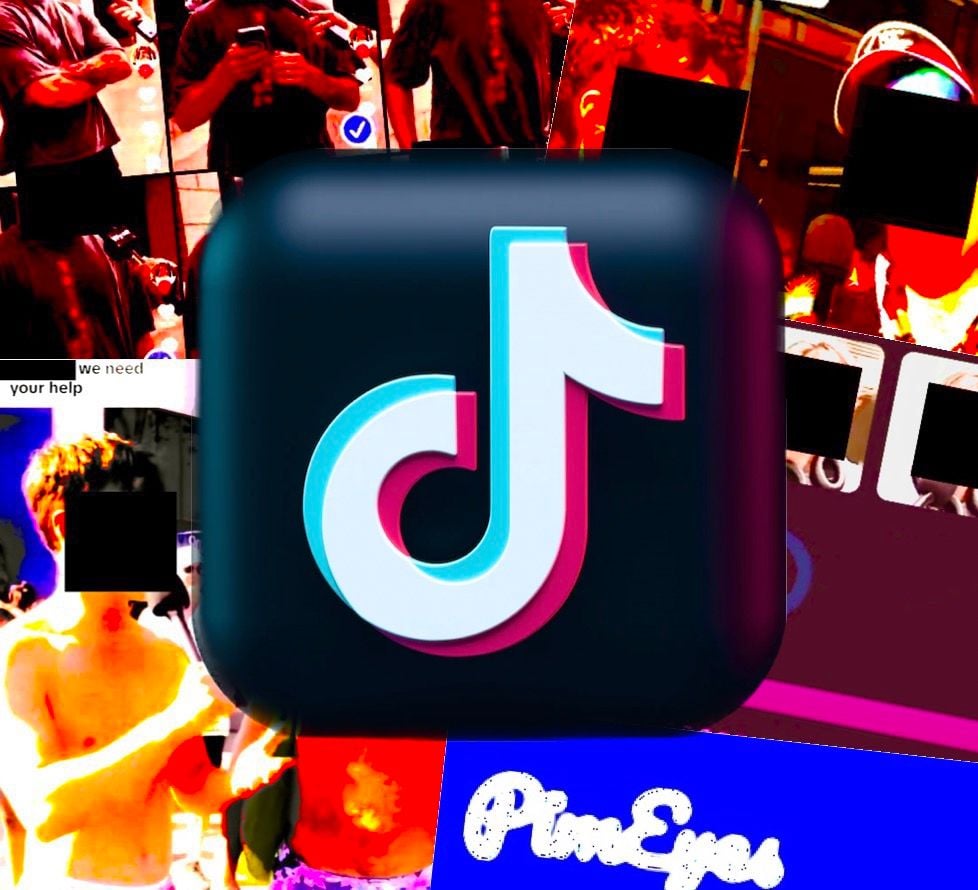A viral TikTok account is doxing ordinary and otherwise anonymous people on the internet using off-the-shelf facial recognition technology, creating content and growing a following by taking advantage of a fundamental new truth: privacy is now essentially dead in public spaces.
The 90,000 follower-strong account typically picks targets who appeared in other viral videos, or people suggested to the account in the comments. Many of the account’s videos show the process: screenshotting the video of the target, cropping images of the face, running those photos through facial recognition software, and then revealing the person’s full name, social media profile, and sometimes employer to millions of people who have liked the videos. There’s an entire branch of content on TikTok in which creators show off their OSINT doxing skills—OSINT being open source intelligence, or information that is openly available online. But the vast majority of them do it with the explicit consent of the target. This account is doing the same, without the consent of the people they choose to dox. As a bizarre aside, the account appears to be run by a Taylor Swift fan, with many of the doxing videos including Swift’s music, and including videos of people at the Eras Tour.
404 Media is not naming the account because TikTok has decided to not remove it from the platform. TikTok told me the account does not violate its policies; one social media policy expert I spoke to said TikTok should reevaluate that position.
The TikTok account, conversations with victims, and TikTok’s own lack of action on the account show that access to facial recognition technology, combined with a cultural belief that anything public is fair game to exploit for clout, now means that all it takes is one random person on the internet to target you and lead a crowd in your direction.
One target told me he felt violated after the TikTok account using facial recognition tech targeted him. Another said they initially felt flattered before “that promptly gave way to worry.” All of the victims I spoke to echoed one general point—this behavior showed them just how exposed we all potentially are simply by existing in public.
…



This only sorta works for today and if your friends never share images or videos online. The ever-increasing amount of people taking pictures and filming and posting them online means the day is quickly approaching where you could be identified and tracked through other people’s content, security & surveillance cameras, etc.
If stores start adopting the tracking used at Walmart and the Amazon biometric data, social media will be the last of your worries.
It doesn’t even have to be your friends. It could just be you walking by in the background of a photo someone else took.
If you don’t have a social media profile for them to cross reference that background pic they can’t do you. Maybe they can link it to your drivers licence but I doubt they have open access to that sort of database.
The problem is people you know may still have social media and they can tag you or include your info in the descriptions, even if you don’t have a profile. Companies collecting this info from social media can totally build a shadow profile if they want, especially if they’ve got like 5 photos that have a matching face and the description has the same tag or name in it.
Regarding the DMV thing, it looks like they don’t sell the photos but do sell other data that may be useful in cross-referencing things: https://www.vice.com/en/article/43kxzq/dmvs-selling-data-private-investigators-making-millions-of-dollars
Removed by mod
The lies you are able to generate will likely never outweigh all of the accurate data other people create and definitely won’t remove it, just add some noise.
Removed by mod
You underestimate how much metadata alone can tell about you
Removed by mod
You should 100% lie when you can. You can give every site a different email address, name, birthday, gender, and location and just note all of that in your password manager.
However, there’s a lot you just can’t control, like other people catching you in their pictures.
Removed by mod
I’ve always done this but when I google my name I still see a website with my full name and birthday next to my family tree :/
deleted by creator
Or leave the house 😢
It’s a matter of difficulty. By deleting all this you make it MUCH harder to get accurate info.